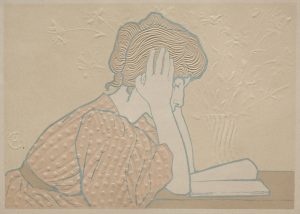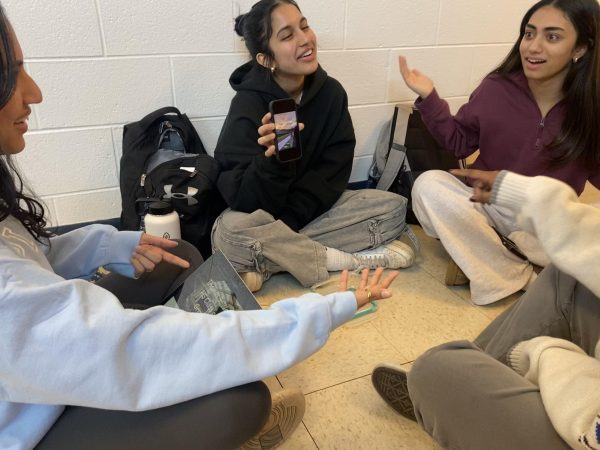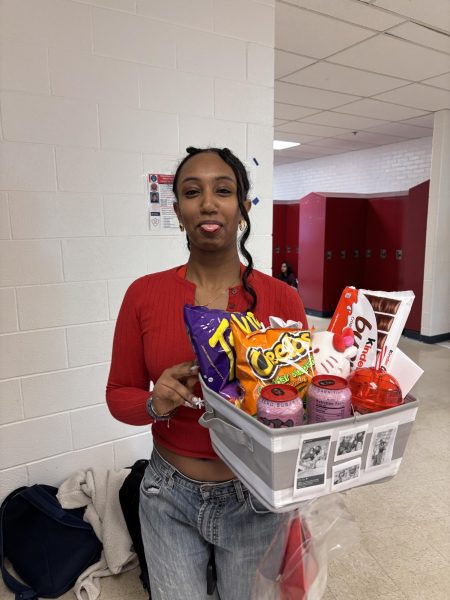Sarah-ious discussions: Embracing instability

Image used with permission from Google Commons
At that moment, she was not OK, which was OK.
There was nothing more demanding than the water droplet falling from my eye. In the time that it descended my cheek, I asked myself numerous questions: Do I wipe it away or let it fall? Is there anyone around? Do I need to search for a nearby bathroom? Am I going to make noise or stay silent? Will people ask questions? Why do I have to do this right now?
Even tear-shedding required reflection. After rushing into the bathroom, I broke the dam, releasing the impounded water that surged forward. Many things happened at once: the knot tied around my heart tightened, my lungs gasped for air, my hand slapped my mouth shut, my eyes gazed downward. And then, someone showed up.
The tips of my fingers angrily wiped at the wetness; my bottom lip embarrassingly quivered, my mind rushed to find a response. Suddenly, there was nothing more annoying than the lone water droplet falling from my eye. The other person quietly took in my appearance, checked her wristwatch, and elbowed the tension with a “you OK?” I nodded, and we both released a breath, switching to being strangers again.
I couldn’t understand why I didn’t shake my head that day until one evening, I rushed into the mall’s public bathroom to relieve my bladder, only to find a girl sobbing in the corner. She froze like I once did, splashed her face with the sink water, and when I asked the same question I had been asked, she paused (perhaps to interrogate herself) and responded the same way. Immediately, I caught the shame that surrounded her hopelessness. It occurred to me, amid pee-urgency, that people who question sorrow and criticize pain are either unaware of their own distress or are protecting themselves from finding it.
It’s not entirely our fault, though. We’re not taught to embrace sadness. Even as pudgy-armed, no-saying, milk-toothed toddlers, our outbursts are hissy fits, our calls complaints. And then, as teenage girls, we’re PMSing, and as pregnant women, we’re hormonal. As young boys, we’re acting like girls, and as grown men, we’re oddities. No one wants to accept that while nothing’s wrong, everything is. But when we don’t admit the fact that yes, in fact, we aren’t OK, we’re tiptoeing around the sleeping beast, a monster whose consciousness is better than its rest because the beast’s slumber promises decay and aching, and its wakefulness provides awareness.
I closed the door shut that day, as that girl was about to leave. “You sure you’re OK,” I asked again, that time folding my arms across my chest, pointing my chin downward, softening my eyes. And then, in seconds, her facade crumbled. She closed her eyes, tired. Her arms lifted, hugging her body, the tears resumed streaming, and her head repeatedly shook from side to side. The corners of my lips lifted sadly.
Your donation will support the student journalists of Thomas S. Wootton High School. Your contribution will allow us to purchase equipment and cover our annual website hosting costs.
Sarah Firdaus is a 2021 graduate.









![Junior Grace Song rewatches the trailer for Anora. Promoted as "A Love Story from Sean Baker," it is the eighth feature film under Baker's belt starring Mikey Madison in the titular role. "[Anora] accurately represents women overseen and easily taken advantage of. It emotionally enticed me. The ending is so good," Song said.](https://woottoncommonsense.com/wp-content/uploads/2024/11/Rc5RQTdjtUFtyT7IyQe1rSxkpOTc6NoksY8jtoop-e1732201365565-600x450.jpg)